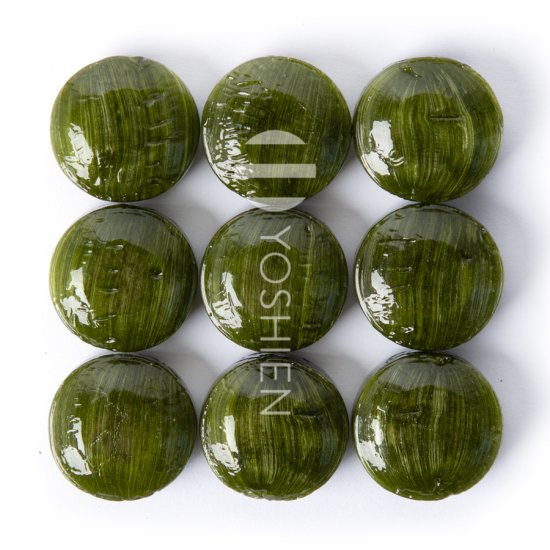Wagashi (Jap. 和菓子)
Wagashi are traditional Japanese sweets and an indispensable part of the cuisine and especially of the chanoyo (Jap. 茶の湯) of the tea ceremony. Anyone familiar with the variety of Japanese tea ceramics, accessories and, of course, teas will not be surprised by the equally rich and varied selection of Wagashi sweets. Wagashi are considered works of art for the senses, and both the classics and regional specialities made from a wide variety of ingredients in all colours, shapes, textures and flavours can be found all over Japan. From the maple leaf-shaped Momji Manju (jap. 饅頭) made of buckwheat and rice with red bean paste filling, to the dry, sweet Higashi (jap. 干菓子) or the savoury salty Mamegashi (jap. 豆菓子), soybeans crunchily coated with rice flour, to the famous mochi (jap. 餅), bean paste-filled cakes made of sweet mochi sticky rice in all variations, you can find the right wagashi for every occasion, place and taste.
This variety also stems from the deep cultural significance and connection of wagashi with the seasons and the landscape of Japan. Often their shape or flavour mimics a particular natural impression, a maple leaf, a fish or even just the deep icy blue of a mountain lake. A Wagashi master is therefore always concerned with the aesthetic design of his confectionery, in addition to taste and high-quality ingredients. A particularly iconic example is probably the sakuramochi (桜餅), pink mochi wrapped with a salted cherry leaf, which are eaten all over Japan at the beginning of the sakura cherry blossoming and the traditional hanami (jap. 花見).










